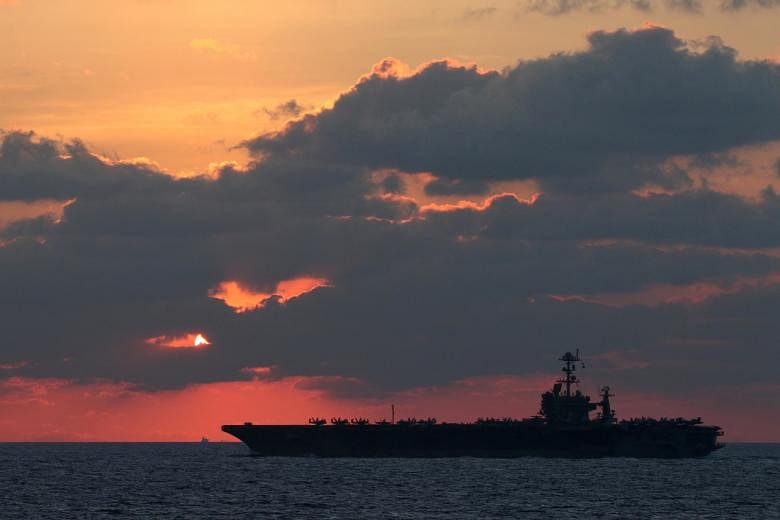MANILA - The Philippines is confident that it can resume searching for oil and gas in the South China Sea unhampered, as China signals it is willing to help a friendly neighbour with dwindling energy sources.
Energy Secretary Alfonso Cusi told reporters on Friday (Oct 16) that Manila's decision to lift a six-year-old moratorium on oil and gas exploration in the disputed waters was unilateral.
But he expressed confidence that since China regards the South China Sea as "an oasis of peace", the Philippines "should be able to do (its) exploration activities peacefully… as the country that has the economic rights".
Shortly after Mr Cusi's remarks, China's Foreign Ministry spokesman Zhao Lijian told a daily briefing that China hopes it can work together with the Philippines in tapping energy sources in the South China Sea.
"China and the Philippines have reached consensus on the joint development of oil and gas resources in the South China Sea and have established a cooperation mechanism for relevant consultations. I hope and believe that the two sides will meet each other halfway, promote joint development, and continue to make positive progress," he said.
The lifting of the moratorium paves the way for three projects to resume, and for the Philippines to award more service contracts.
The projects include one by Forum Energy, a unit of PXP Energy. Forum has a 70 per cent interest in Service Contract 72 covering gas exploration in the disputed Reed Bank. PXP has had talks with China National Offshore Oil Corp about joint exploration and development there.
Mr Cusi said the decision to lift the moratorium was "done in good faith", and he expected China to "respect it". "I'm sure they want us to be successful," he said.
He added that the Philippines needs to tap new sources of oil and gas, as the Camago-Malampaya natural gas field, off the coast of Palawan province, which fuels three power plants that provide electricity to a sixth of the country, dries up by 2024.
"We need to address our energy security. We need to harness the resources available in the South China Sea… We have to stand up for our rights. That's what we're going to do. But we won't be picking a fight," he said.
The energy secretary said he does expect some notice from China.
"I'm sure that they will not just take it without raising a word. I'm sure they're going to write to us, and we will address that as it comes," he said.
The Philippines imposed the moratorium in 2014 while awaiting the ruling in a case by the Permanent Court of Arbitration in the Hague, which in 2016 invalidated China's claim to sovereignty over most of the South China Sea.
China has refused to recognise that ruling. It claims almost the entire South China Sea, believed to be rich in energy and marine resources. Brunei, Malaysia, Vietnam and Taiwan also have claims.
China's seeming willingness to let the Philippines resume drilling for oil and gas in disputed waters is a departure from how it has treated other claimants.
China has been stymying efforts by Vietnam and Malaysia to explore for oil and gas in the South China Sea.
Philippine President Rodrigo Duterte has been cultivating warm ties with Beijing since he took office in 2016. He has set aside the 2016 ruling against China. Beijing, in turn, has danced around diplomatic issues that could provoke a pushback from Mr Duterte.


